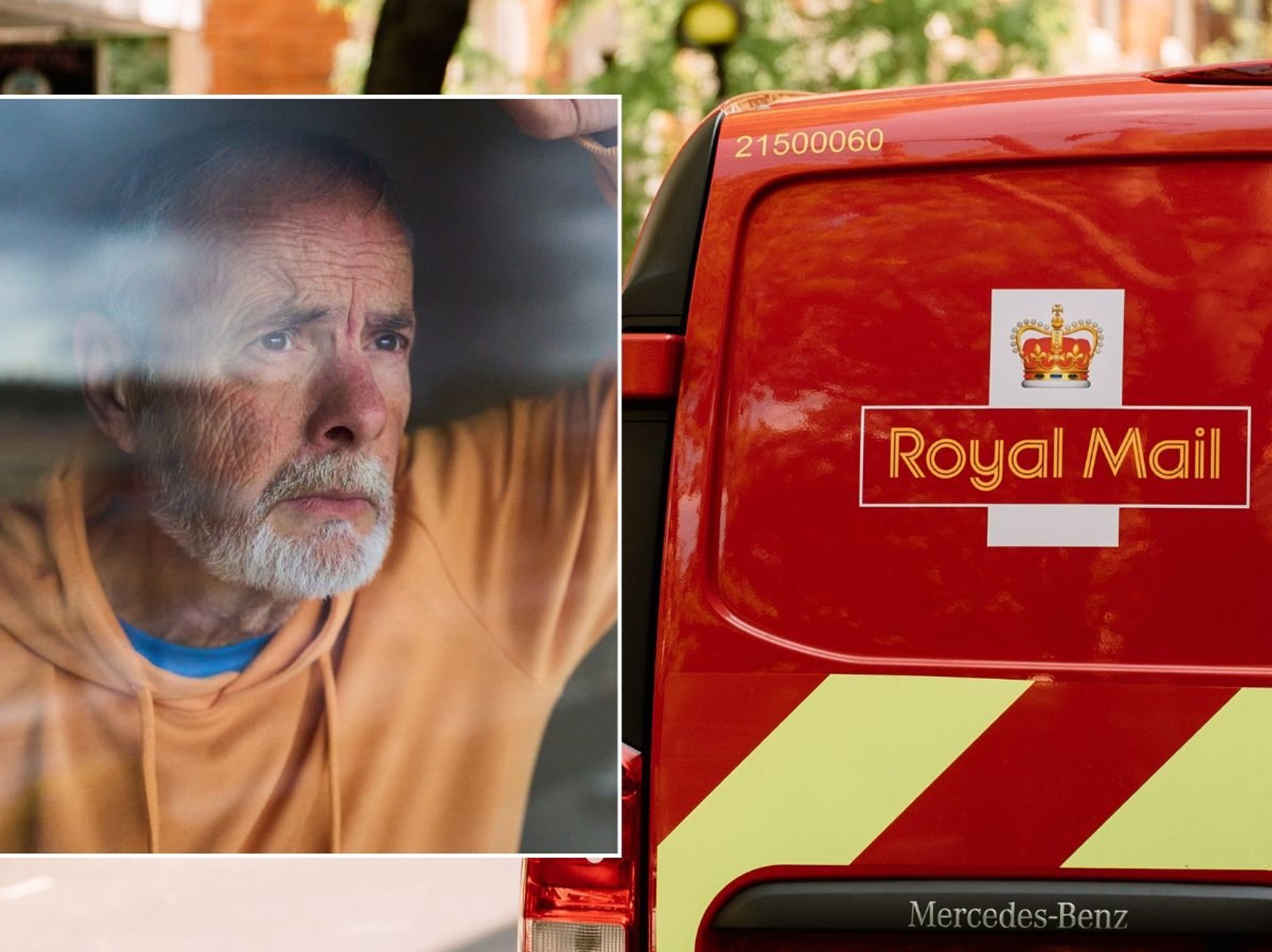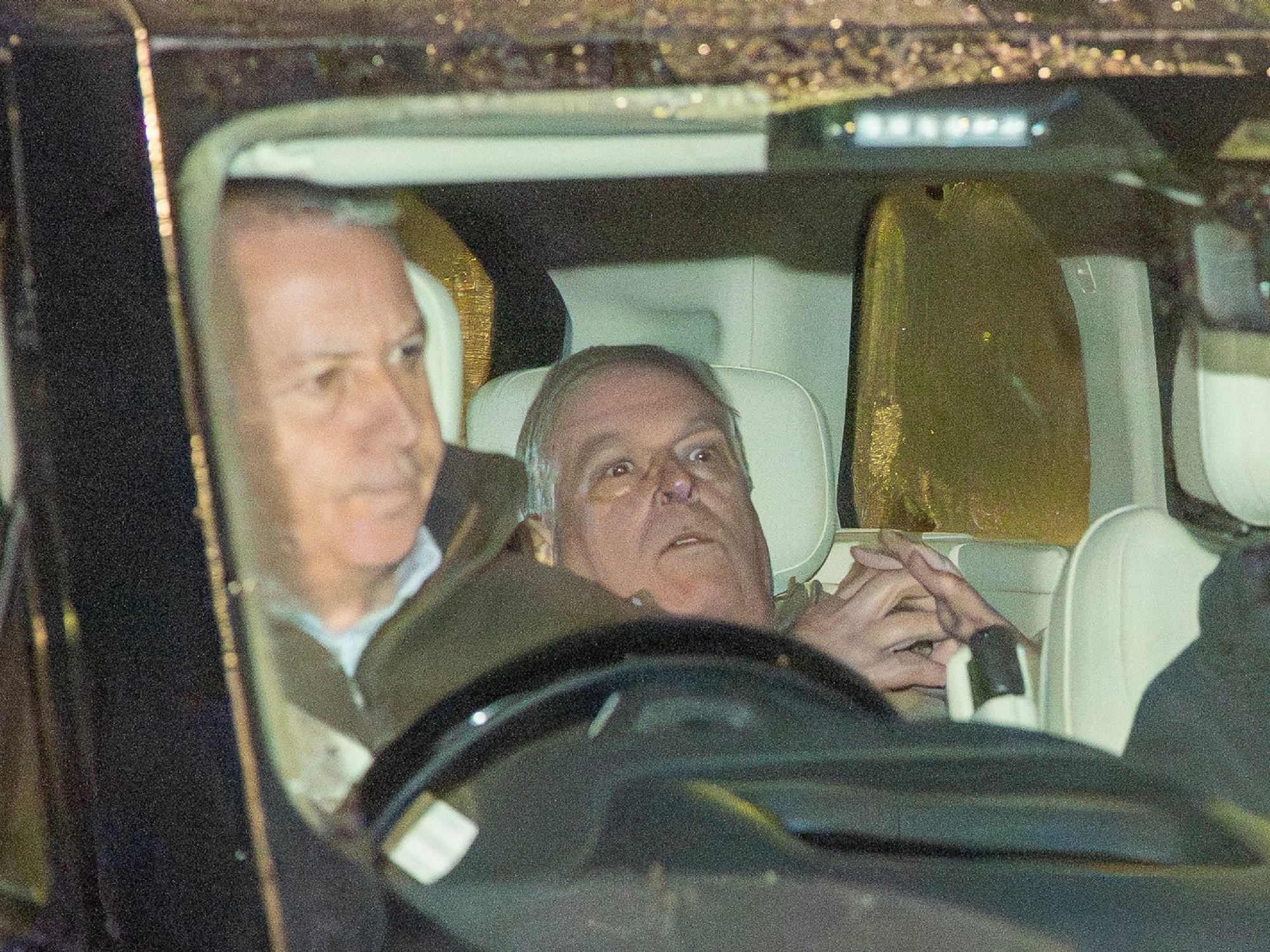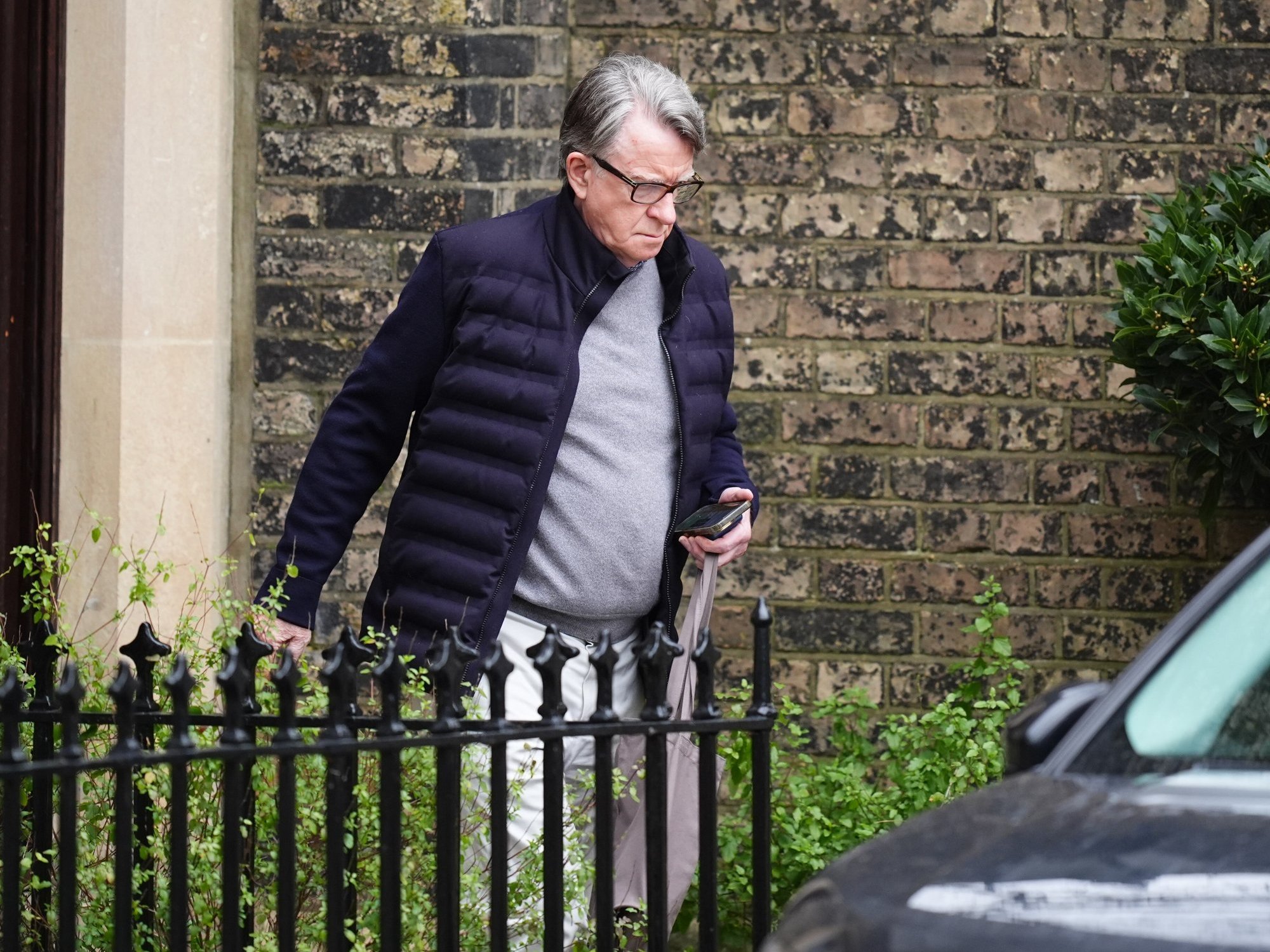REVEALED: The 32 seats that could parachute Nigel Farage into No10 as General Election petition hits 800k
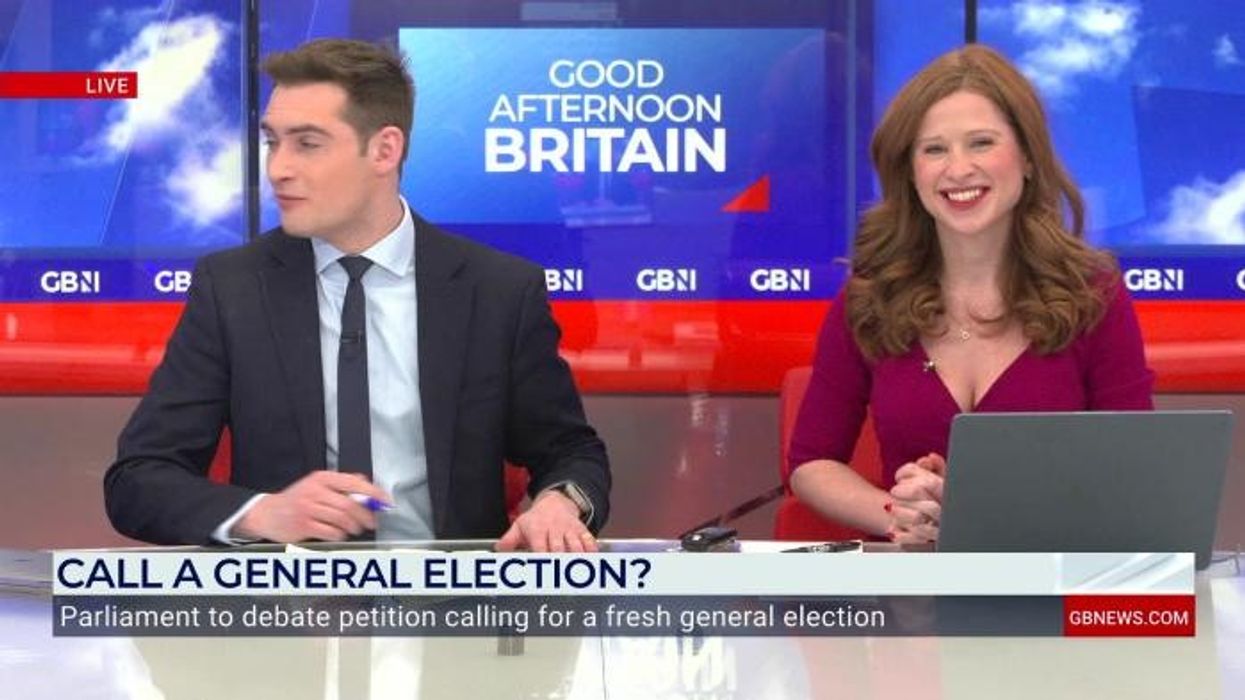
General Election petition author Michael Westwood declares 'things must change' ahead of debate |
GB NEWS

Nigel Farage is currently poised to pick up 27 of the 32 seats, GB News analysis shows
Don't Miss
Most Read
Trending on GB News
There are 32 Labour-held seats where the incumbent MPs’ majority is less than the number of signatures obtained in a recent petition demanding a General Election, GB News analysis has revealed.
More than 810,000 Britons have signed Nicola Cree’s petition urging Sir Keir Starmer to call a snap poll, significantly lower than the three million who signed a separate petition demanding an immediate nationwide poll earlier this year.
However, discontent with Sir Keir's Government, which is reflected in the Prime Minister’s declining approval rating, now puts pressure on Labour strategists can keep an eye on potential weak spots ahead of the next General Election.
While it is not yet known if MPs will debate holding an immediate General Election for a second time this year, the People’s Channel found that the number of signatures outnumbered the razor-thin majorities held by Labour MPs in 32 out of 35 seats of Sir Keir's most vulnerable seats.
Hendon, Poole and North West Cambridgeshire were won by Labour by 15, 18 and 39 votes, significantly lower than the 647, 1,584 and 1,396 signatures recorded.
Meanwhile, Clwyd North, Dartford, Lichfield, Norfolk South West, North West Leicestershire, Pendle & Clitheroe, Portsmouth North, Redditch, Ribble Valley, Sittingbourne & Sheppey and Tamworth all witnessed a staggering number of constituents sign the petition.
Other Labour-held seats identified as being particularly vulnerable include: Aylesbury, Bracknell, Bury St Edumunds & Stowmarket, Derbyshire Dales, Dorset South, Dunstable & Leighton Buzzard, Forest of Dean, Middlesbrough South & Cleveland East, Peterborough, Rother Valley, Somerset North, Stoke-on-Trent South, Suffolk Coastal and Uxbridge & South Ruislip.
Despite failing to exceed 1,000 signatures, Birmingham Yardley, Chelsea & Fulham, Earley & Woodley and Ilford North all managed to obtain more signatures than the majorities currently held by their sitting Labour MPs.

Sir Keir Starmer marking VJ Day
|PA
GB News also found that Reform UK is nipping at Labour’s heels in a majority of the seats that had been identified as being in Sir Keir's electoral "danger zone".
Reform UK is currently forecast to pick up 27 of the 32 seats, Nowcast's latest projection has suggested.
The Tories could claw back Hendon, Chelsea & Fulham, Earley & Woodley, and Somerset North if the polls hold firm at the next General Election.
Meanwhile, Health Secretary Wes Streeting is tipped to lose his Ilford North seat to a pro-Gaza independent, having only seen off Leanne Mohamad by just 548 votes last July.
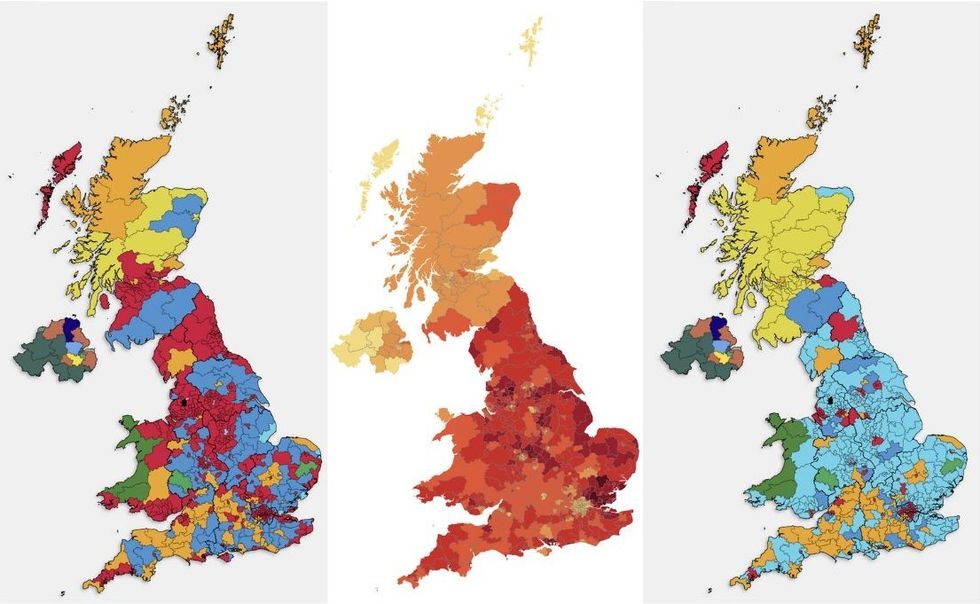
Maps showing the result of the 2024 General Election, petition demanding a General Election and Nowcast's latest forecast
|ELECTION MAPS/PARLIAMENT
The damning analysis comes as GB News reveals that the parliamentary authorities are coming under increasing pressure to confirm a Westminster Hall debate will take place after the petition exceeded the 100,000-signature threshold.
Reform UK MP Sarah Pochin, who was unable to participate in the first debate as it took place five months before her by-election victory in Runcorn & Helsby in May, told the People's Channel: "Their decision to cancel Local Elections, now coupled with their disregard for a petition signed by nearly a million citizens, suggests a troubling pattern of ignoring the electorate."
Shadow Armed Forces Minister Mark Francois, who spoke in the first debate on the petition months ago, added: “The fact this petition has continued to attract thousands more names, even months after it was officially debated, shows how the clamour for Labour to face the electorate is growing, not falling.
"With a Labour Government with a public disapproval rating of 68 per cent, it’s no wonder people want to boot this lot out of office, first chance they get."
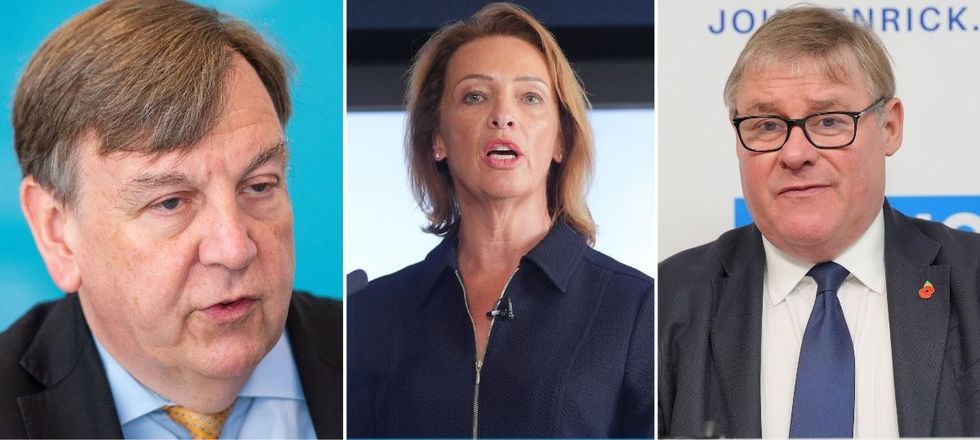
Sir John Whittingdale, Sarah Pochin and Mark Francois spoke to GB News about the petition
|PA
Meanwhile, ex-Culture Secretary Sir John Whittingdale also told GB News: "There is, of course, no possibility of a General Election unless the Prime Minister calls one or the Government is defeated in the House of Commons.
"However, Parliament has said that petitions achieving 100,000 signatures should be debated and given that this is way over that.
"I would expect there to be debate when Parliament returns. The scheduling can take some time but it definitely should happen."
GB News understands that the Petitions Committee will only start to consider whether MPs will debate the petition at its next meeting in September.
However, the Government just last week rejected public calls for the British people to go to the polls for their sixth General Election in 15-years.
In a 258-word statement, the Cabinet Office stressed that the Prime Minister can call a General Election by “requesting a dissolution of Parliament from the Sovereign”, adding: “This Government is fixing the foundations and delivering change.”
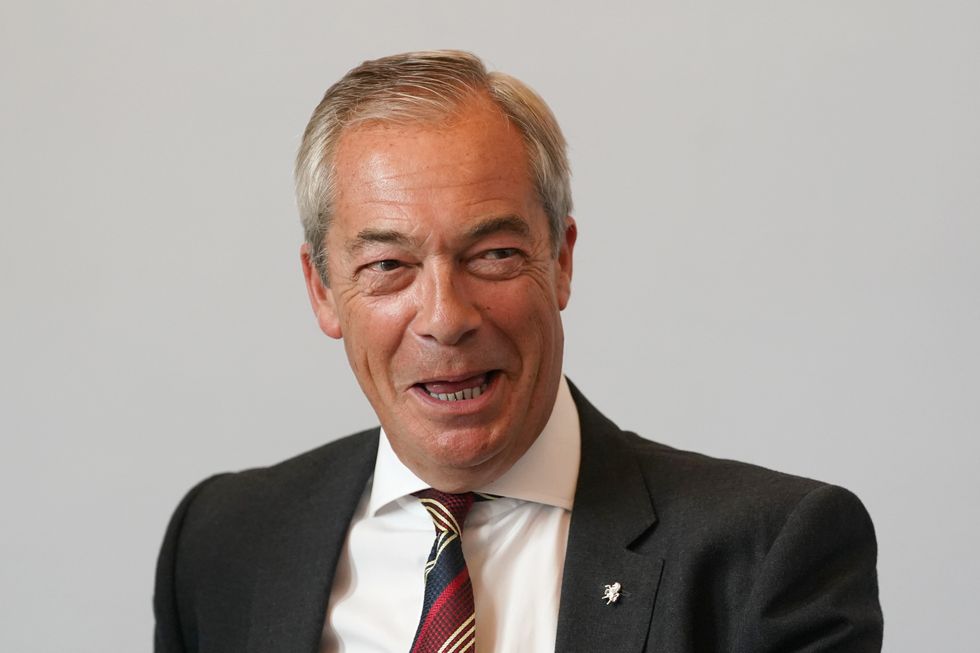
Reform UK leader Nigel Farage at Kent County Council
|PA
Even if MPs are granted the opportunity to debate the petition, it is highly unlikely that a General Election will be held any time soon.
Under the now-repealed Fixed Term Parliaments Act, the Prime Minister needed to pass a vote to hold a national poll.
The Dissolution & Calling of Parliament Act restored the Prime Minister’s ability to call a General Election via the Royal Prerogative.
A no-confidence motion could theoretically force a General Election, although the composition of the Commons makes such a scenario incredibly unlikely.
 Keir Starmer | PA
Keir Starmer | PAThe last time a Prime Minister was defeated in a confidence vote came in 1979, when James Callaghan lost by one vote ahead of Margaret Thatcher's first General Election victory.
There have only been two other confidence votes lost by the Government in the House of Commons over the course of the 20th century - with Stanley Baldwin and Ramsay MacDonald both suffering defeats in 1924.
Both Boris Johnson and Theresa May more recently avoided being added to the Commons humiliation list by seeing off no-confidence votes by majorities of 109 and 19 respectively.
Meanwhile, Starmer entered No10 off the back of a huge landslide, giving the Prime Minister a so-called super-majority in the Commons.
However, Starmer came close to facing his first shock parliamentary defeat last month after rebels plotted to revolt over his now-axed proposals to slash £5billion from Britain's ballooning benefits bill.
More From GB News






